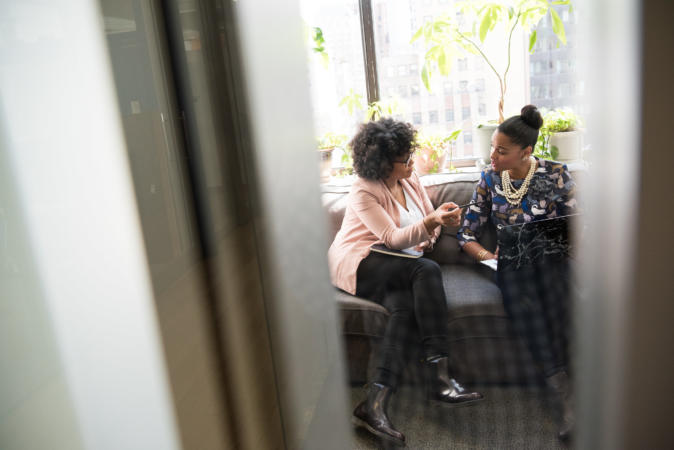Time and time again business owners talk about the joys of working for themselves. Whether they left their job to pursue a passion or wanted more pay, self-employed people are generally happier with their decisions compared to those who work for others, a new study has found.
Thumbtack surveyed more than 900 freelancers and business owners across various industries and found that the morale of self-employed women was much higher than general trends. About 58 percent of respondents said they felt they were less likely to experience workplace gender discrimination, while 54 percent said they were less susceptible to the gender pay gap.
However, these feelings of hopefulness did not stop people from questioning female business-owners’ expertise in their fields. Women small business owners are five times more likely than men to have their expertise addressed and ten times more likely if they are in a male-dominated industry. The study also showed that over 30 percent of the women surveyed said that their gender negatively affected their ability to gain new customers.
Black women deal with added factors in the workplace including racial biases, which can also amplify the impacts of the gender pay gap. Black women currently make 89 cents to the dollar of white men. A separate study by Women in the Workplace said that Black women are less likely to be represented in the workplace and less likely to receive promotions. More than two-thirds of the women in the Thumbtack study said they were able to earn more working for themselves because they set a higher hourly wage compared to a traditional working arrangement.
These combined factors could contribute to the growing number of Black women starting their own companies. Self-employment in Black women rose 4.5 percent to 6.8 percent between 1993 and 2012, highlighting the growth in Black-owned businesses during the recession. Women-owned businesses jumped 52 percent from 2002 to 2012, according to Thumbtack’s survey.
Women from various backgrounds said that the biggest challenges in owning a business is maintaining and retaining customers, providing benefits for employees and having access to benefits themselves.
Black women are in a unique position to start their own businesses and shorten the gender wage gap; however, they face a different set of challenges compared to their white counterparts. Finding funding, securing customers, and other social factors play roles in their success. It’s these barriers, and the work and creativity it takes to overcome them, that make Black women such a force as entrepreneurs.

